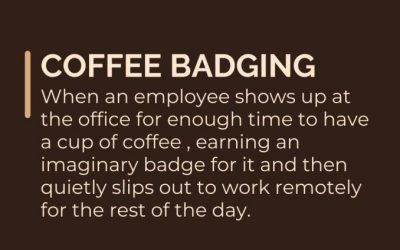1. Prepare in Advance
Know what you want in a candidate before you begin the interview.
Review the job specifications and requirements that have been prepared.
Know the job and its responsibilities.
Review the job description.
Prepare a list of standard questions.
Focus on the candidate’s skills, abilities and past work performance that you want him/her to answer.
Prepare a list of prioritised and measurable criteria.
Either in the form of a worksheet or other method, for analysing and comparing the candidates.
Review the candidate’s CV prior to the interview.
Set specific appointment times and reasonable time limits.
Be prepared to justify the use of any required employment test.
Typically, the most legally defensible tests are those that involve a “piece of the job.”
2. Collect Pertinent Information During the Interview
Since past behaviour predicts future behaviour, look for the candidate’s behaviour “patterns” as you collect information.
For example, has the candidate enjoyed “big picture” work or detailed analysis more? Is he/she more of a generalist or more of a specialist? Often, by listening to how the candidate responds to your questions about previous jobs, you will be able to ascertain a very good idea of what their behaviour will be like in the future.
Try not to offer too much detailed information up front, so that the candidate will be able to formulate answers that exactly fit your company’s needs.
Don’t put the right words in his/her mouth! Remember, the candidate (hopefully) wants the job and will be looking to say the right thing to impress you.
Ask questions that focus on the candidate’s past performances.
For example, if the job, such as a Support Analyst, demands an individual who is well-organised and has a logical approach to troubleshooting, you may want to ask, “How do you prioritise tasks in your current position?”
Ask specific, structured questions in regards to specific problems that the job holder may face.
Focus on past behaviour and the results of the candidate’s actions in a particular situation. For example: “As the Help Desk person, you may encounter a few unhappy users who will yell and scream at you over the telephone or in person. Have you had any experience dealing with difficult users? Who was the most difficult user you had to deal with? What was the situation? How did you resolve the problem?”
Notice how well the candidate listens and responds to the questions asked.
Note the candidate’s choice of words and non-verbal behaviour.
Are they answering your questions clearly?
Listen to the questions the candidate asks.
Clarify the reasons why the questions are being asked. Notice which questions he/she asks first as they may be his/her primary concerns.
Take detailed hand-written notes concerning job related topics that will help you distinguish the candidates from one another.
(Especially if you will be conducting several interviews). Help yourself remember each candidate and each interview clearly.
Record information pertaining to the set criteria that will help in the evaluation of candidates.
Organise and analyse the information immediately after the interview when memory is fresh.
Don’t try to remember everything- it’s impossible. One idea is to “rate” each candidate on each of the criteria immediately following the interview.
3. During the Interview
Set a businesslike atmosphere.
Structure the interview and inform the candidate of this structure.
Let the candidate know you will be focusing on past results and that you will be taking a lot of notes.
Provide information on the company and the job to each candidate.
4. Treat All Candidates Fairly
Use your list of standard questions during each interview.
Enable you to treat the applicants the same and so that you can compare fairly.
Refer to the criteria for analysing candidates.
Ask questions in regards to the job criteria.
Keep all questions job-related.
Do not ask discriminating questions.
Show a genuine interest in every candidate you interview.
If possible, have at least one other person to meet and/or interview candidates who are “finalists”.
They should also “rate” the candidates on each of the criteria; ultimately, all interviewers should compare their “ratings” and discuss any discrepancies.
5. Be Courteous and Respectful
Conduct the interview in a private place away from distractions.
Begin the interview on time.
Conduct the interview without interruptions.
Allow sufficient time for the interview.
Appreciate the candidate’s accomplishments.
Do not patronise the candidate.
Do not argue with the candidate.
Thank the candidate for his/her time and interest.
6. Facilitate Open Communication
Immediately attempt to establish a rapport with the candidate.
Break the ice; for example, ask about their experiences in a particular industry or geographical location (refer to his/her CV).
Promote a relaxed environment with free-flowing conversation.
Do not dominate the discussion by talking too much.
Many experts use a 80/20 rule – you talk 20% of the time and the candidate talks 80% of the time.
Politely probe the candidate for information.
Ask open-ended questions that will provide insight into the candidate’s values and traits.
Ask structured questions that will require some thought on the part of the candidate.
Listen carefully to the candidate’s answers.
If they do not provide you with specific results, probe until they do.
Explain the selection process to the candidate.
Offer realistic time frames and stick to your word!









